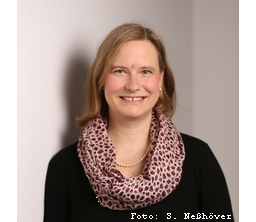Library and Information Science – Program Content

This four-semester Master’s program qualifies graduates of any academic discipline as well as librarians holding at least a Bachelor’s degree for highly-specialized responsibilities and leadership positions in libraries and other information centers. The program is particularly designed to meet the individual needs of students working full- or part-time while pursuing their degree.
Qualification Objectives
Participants of the program will acquire the following key competencies:
- Professional management of institutions providing access to information and information services
- Strategic development of innovative information services
- International knowledge management
- Assessment and implementation of target group-specific subject indexing of information resources
- Assessment and development of solutions for the optimisation of information processes
- Library and information policy skills
- Classification, assessment and anticipation of informational developments in the context of social and media-related developments
- Ability to participate in professional discussions on current developments based on scientifically sound knowledge and specific practical experience
In addition to professional competencies, general key qualifications of particular importance in management and leadership will be imparted. These include:
- Communicative competence (conducting negotiations, communication in situations of conflict)
- Presentation (rhetorical skills and techniques)
- Cooperation and teamwork
- Project management
Graduates of the program have acquired up-to-date knowledge about current trends and developments in the fields information services, information literacy, information technology, as well as information indexing and information law.
Target Groups
The program is designed for two target groups:
- Graduates of any academic discipline who wish to achieve further qualification for specialized responsibilities and tasks and/or leadership positions in public or academic libraries or other public or private institutions providing access to information and information services.
- Librarians who hold a Bachelor’s or German “Diplom” degree as well as other information specialists with practical experience who wish to expand their know-how and to gain additional qualification in the field of library and information science.
In Detail
Program Design and Organization
The duration of the program is four semesters. Based on the concept of blended learning, the course organisation is particularly geared towards the needs of students working full- or part-time while pursuing the degree. Thus, the curricular content will be partly imparted in on-campus block courses and partly acquired in self-study phases. A powerful learning management system facilitates exchange between students during collaborative work and communication with teaching faculty and allows them to make available their work results.
Integrated into the course are a number of practical projects, giving students the opportunity to put theoretical contents into practice in their employing institutions. As part of the optional modules students can choose from various in-depth topics allowing them to set priorities according to their individual professional interests.
The curricular content comprises five interlinked subject areas. Exams take place either at the end or during the respective module. Modules are offered in the following subject areas:
- Management
- Library – Information – Society
- Metadata
- Information Resources and Services
- Information Technology
These subject areas are addressed and expanded in the optional modules of the third semester. International experts will contribute to the content of these optional modules. As part of some of these modules, participants will undertake study trips to selected institutions. Students can choose from the following in-depth topics:
• T1: Academic services (support for teaching and research)/subject librarianship
• T2: Strategic positioning of public libraries
• T3: E-science and research data management
• T4: Digitisation and preservation
• T5: Legal and ethical issues in practice
• T6: Teaching information literacy
• T7: Current trends in science policy
• T8: Organizational concepts in library building and design
• T9: Current trends and developments
In all modules, the focus will not only be on German but also on international information issues. Accordingly, selected courses or parts of courses will be taught in English.
Admission Requirements
The minimum admission requirements for the Master's program are a university degree as well as twelve months of professional experience (gained either during an internship or previous occupation). At least two months must have been spent in a library or other institution providing access to information and information services. Ten or less months of professional experience can have been gained in relation to the student’s first degree studies. Students need to complete the entire twelve months of professional experience before entering the degree course. The hereby gained professional expertise has to be proved during the assessment test and contributes 30 credits to the overall required number of credits.
International Degree
Upon successful completion of the program, students receive the degree “Master in Library and Information Science“ (M.LIS).
The international recognition of this degree is verified by the successful accreditation of the program by Britain's leading professional association CILIP and enables graduates to enter the international job market.
Tuition Fees
Tuition fees amount to €1,350 per semester.

